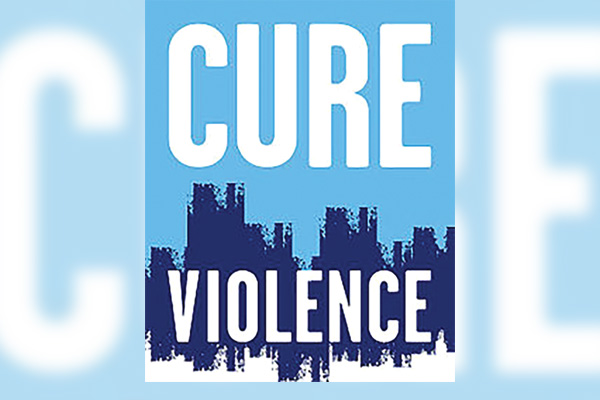Cure Violence, a program that treats violence like an epidemic, is most likely coming to Greensboro.
The program has been used in Durham since 2016 and Mel Downey-Piper from the Durham County Department of Public Health, which funds and runs the program, gave a presentation to the Greensboro City Council on Tuesday, Sept. 4, at a work session in the Plaza Level Conference Room.
City Councilmember Justin Outling made the point several times that in the City of Durham, Durham County was paying for the program, but in Guilford County Greensboro was expected to pay. Outling also suggested that Greensboro study other programs before committing to Cure Violence.
Greensboro probably won’t investigate other programs as Outling suggested and will pay half the total cost of implementing the Cure Violence program, which is about $600,000 per year.
It has been suggested, though not promised, that Guilford County would pay half if Greensboro would pay half.
Mayor Nancy Vaughan and a committee of three councilmembers as yet unnamed are supposed to meet with Chairman of the Guilford County Board of Commissioners Alan Branson and three commissioners.
The idea is for the joint committee to hammer out the parameters of an agreement and then allow the city and county staffs to work out the details.
Cure Violence targets an area with a high incidence of violent crime and hires people from that community as “interrupters.” Their job is to go out and stop the violence before it happens.
Downy-Piper said that most of the Cure Violence interrupters in Durham had felony convictions and had served 10 to 20 years in prison. The program is set up to use people from the community to convince people that violence is not the best answer to whatever problem they are trying to solve, and it has been successful in cities across the country. The program is based on the method of stopping an epidemic by interrupting its transmission.
Outling asked if the Cure Violence program had reduced violent crime in Durham or simply in the target areas. Downey-Piper said that they only kept records for the target areas and in the target areas shootings had been reduced by 43 percent, but since the police kept records of shootings differently from Cure Violence it was difficult to compare to citywide figures.
Councilmember Tammi Thurm asked how the interrupters interacted with police. Downey-Piper said they didn’t. She said if the word got out that one of the interrupters was a snitch, that would hurt the program. She said, “Team members don’t interact with police. They don’t want to be seen in the same room.”
She said that often after a shooting the team members know exactly who did it, but they don’t tell the police. But she said that the program does depend on the police for data. She said the communication was all one way – Cure Violence got information from the police but they didn’t give information to the police.
In Durham County, all of the people working in the Cure Violence program are employees of the Durham County Department of Public Health.
Guilford County and Greensboro are considering running the program through a nonprofit rather than through the Guilford County Department of Public Health. In fact, so far this seems to be a discussion between the Guilford County Board of Commissioners and the Greensboro City Council, both of which have now heard presentations about the Durham County program, but the Guilford County health department doesn’t appear to be involved.
City Councilmember Michelle Kennedy said that one of the advantages of working through the health department was funding, because nonprofits were always looking for more funding and she believed that when you considered all the costs of the program, it cost the Durham health department more than $420,000 a year and much of that is likely in kind contribution from the already existing infrastructure of the health department, something a nonprofit wouldn’t have.
City Manager David Parrish said that he had communicated with County Manager Marty Lawing about setting up a meeting. There was no mention of the Guilford County health department being involved.
Guilford County Commission Skip Alston attended the work session and said the county was looking for participation from the city.
Vaughan said it sounded like the county wanted to be in partnership with the city.
Outling noted that in other counties in North Carolina, the county participated in paying for downtown parking decks, but not only did the Guilford County commissioners not participate in building either of the two new parking decks, but it was selling land to the city for the Eugene Street deck at a price of over $5 million.
Outling didn’t get much traction from his fellow councilmembers in his suggestions that since this was a program treating violence as a public health issue, it was the county’s responsibility, nor in his suggestion that the city consider other programs before committing to Cure Violence.
Councilmember Sharon Hightower said she that she didn’t want the decision to be dragged out because people were getting killed in the community.
It appears the Cure Violence program has wide support on the City Council and the majority of the council will likely agree to participate or partnership with Guilford County in implementing the program to the tune of $300,000. It also appears that there will be a strong push to have the program in Greensboro run by a nonprofit and not by the Guilford County Health Department.

